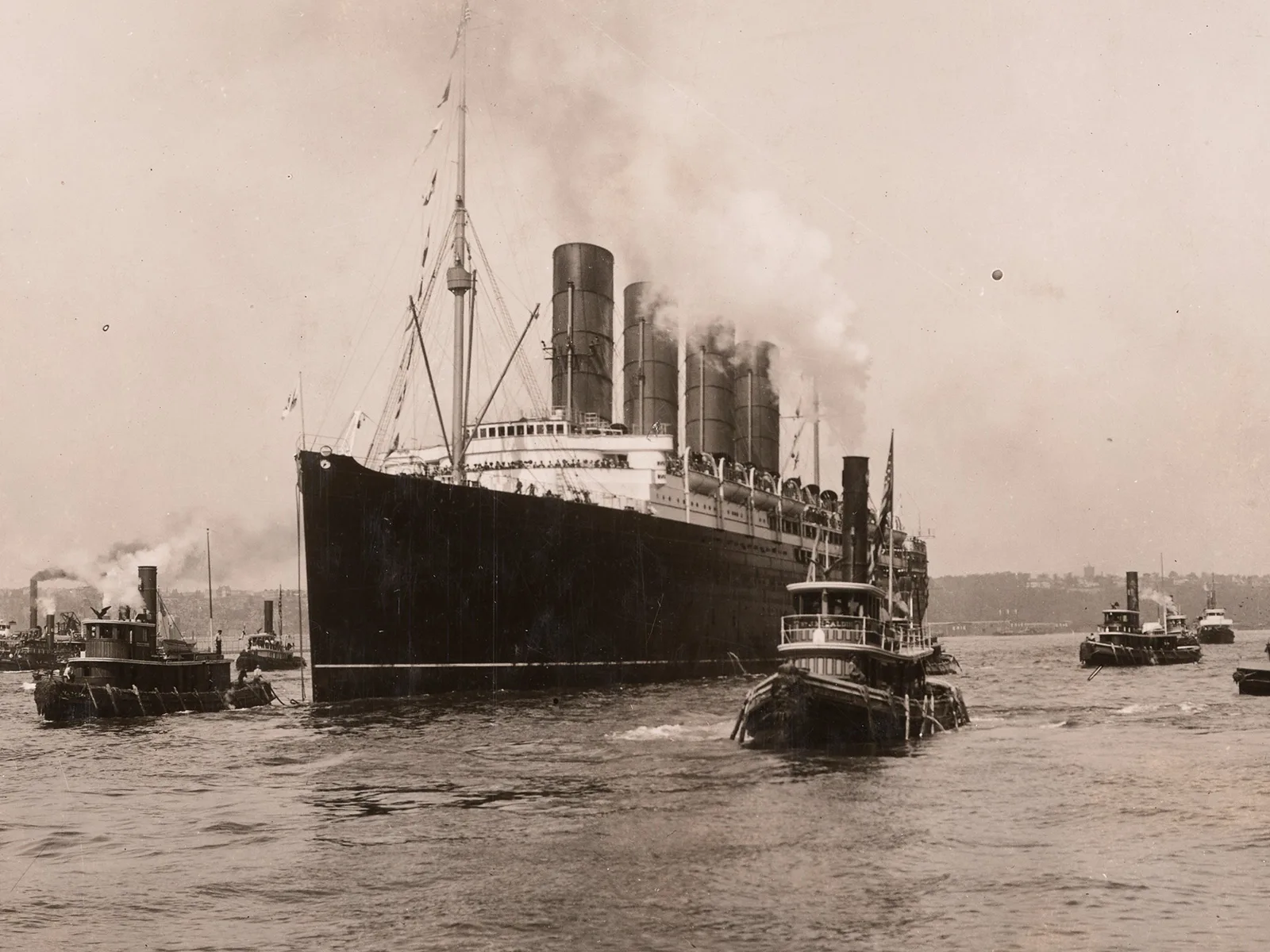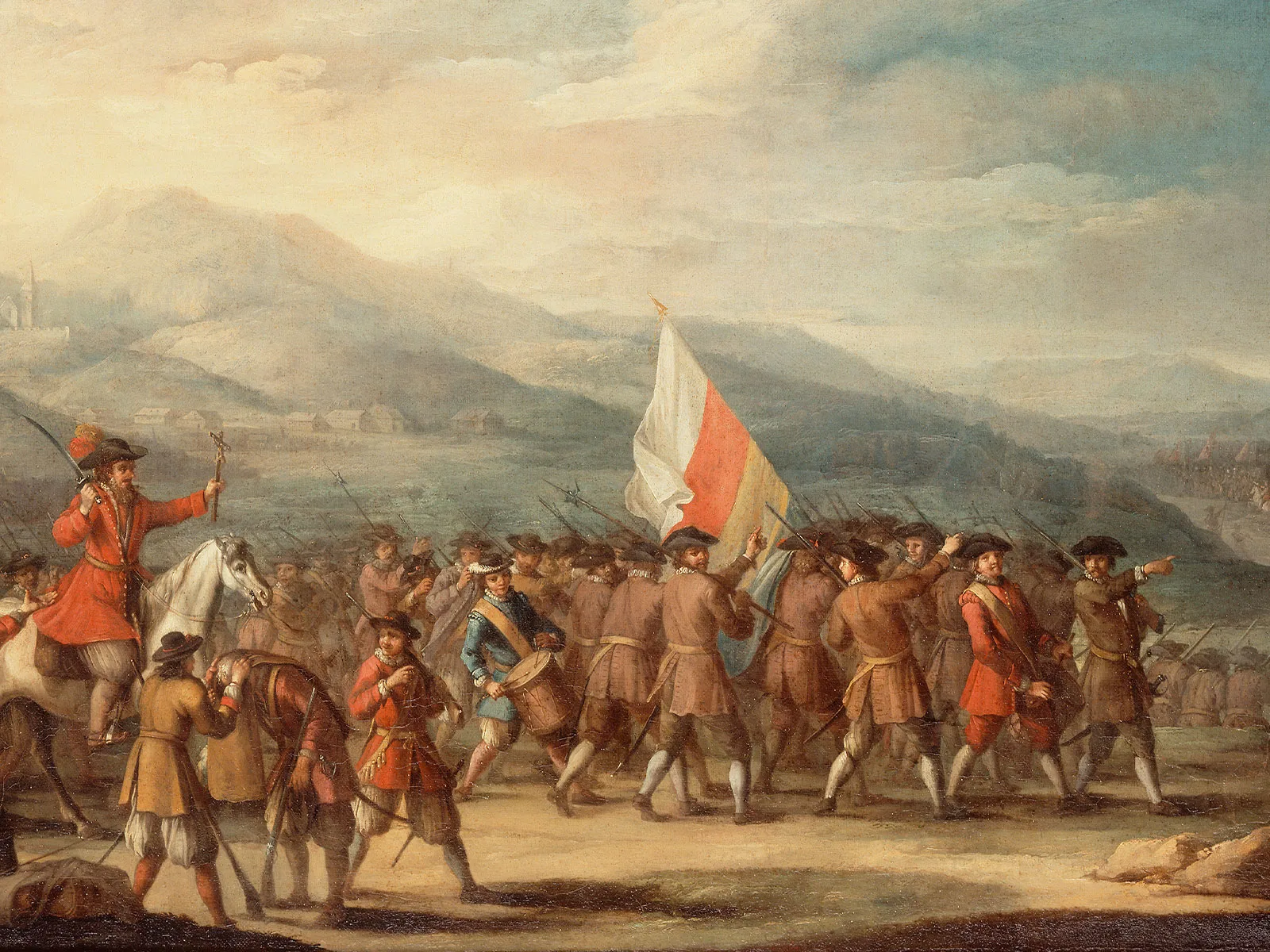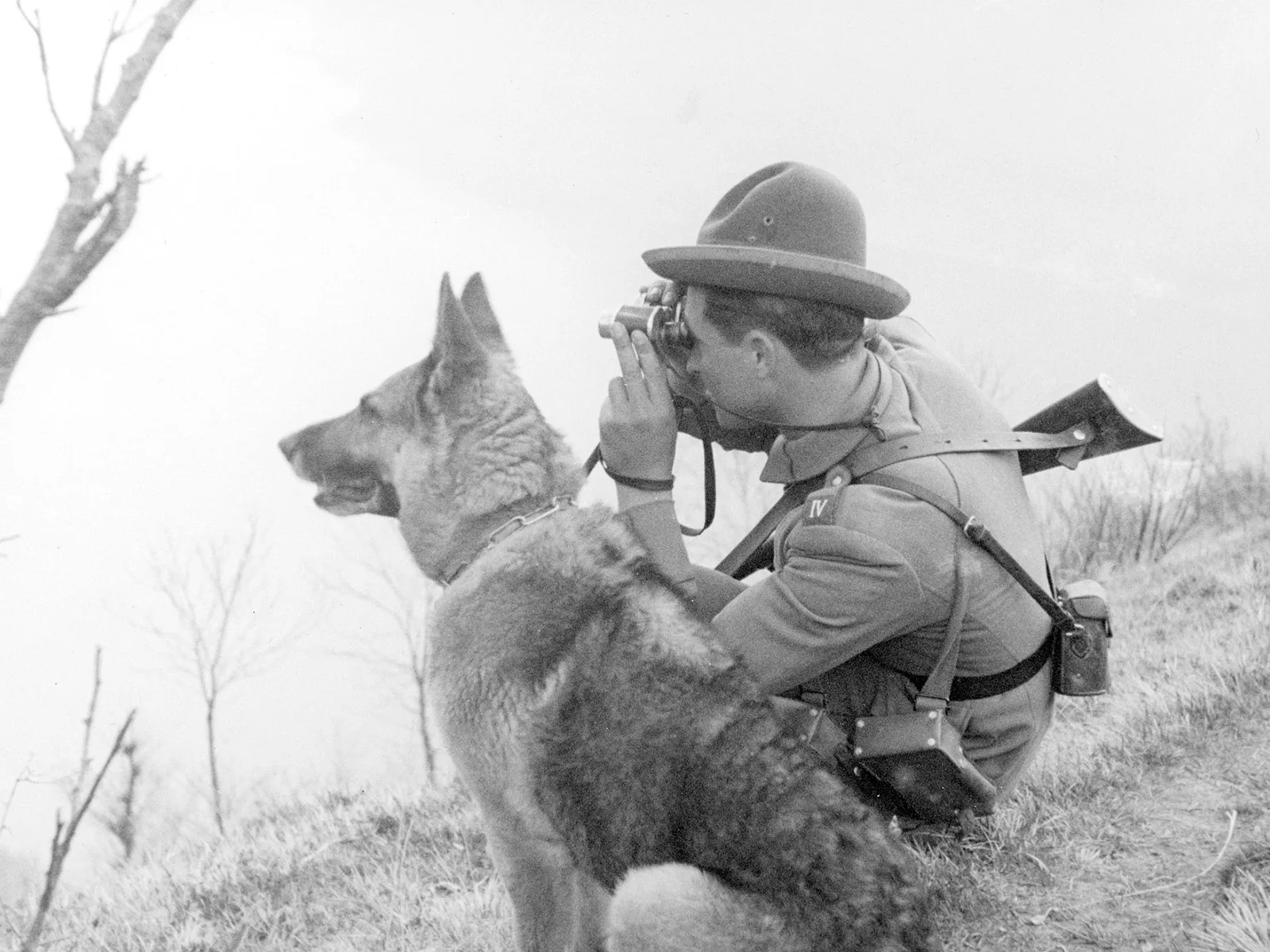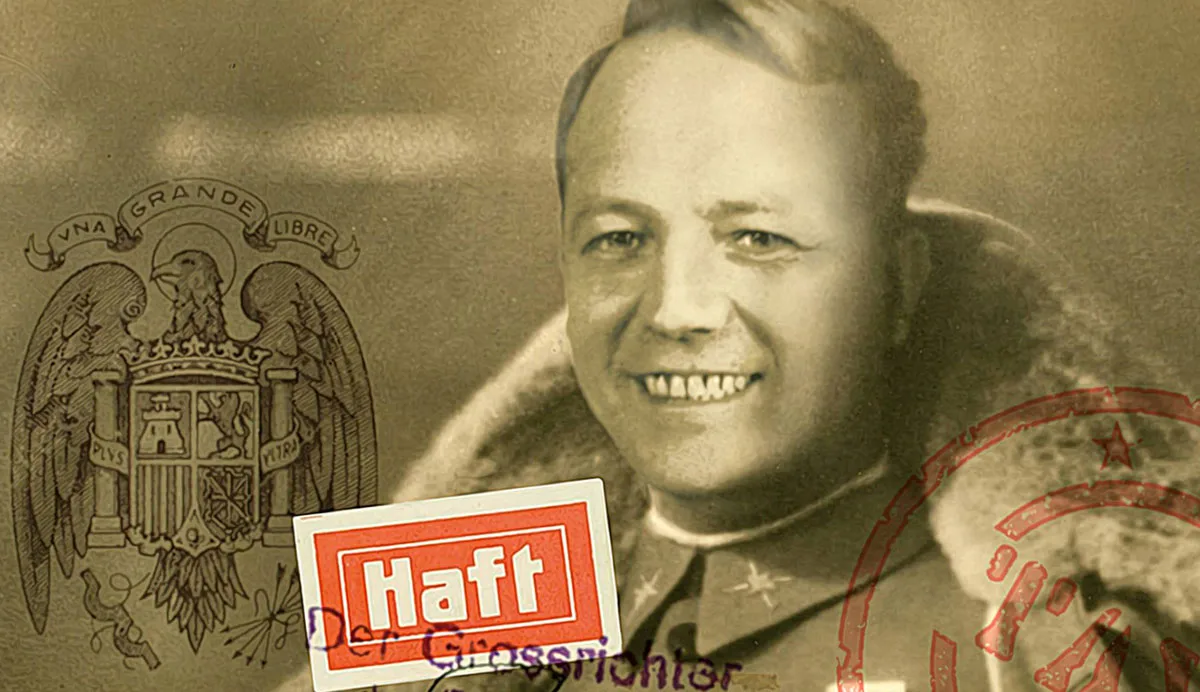
Allow me to introduce myself: Leonhard, war hero…
Jakob Leonhard fought against the fascists in the Spanish Civil War. Or did he? The strange story of a Zurich taxi driver who slipped away mysteriously, only to return a hero.
TV documentary on the Spanish Civil War. YouTube / British Pathé
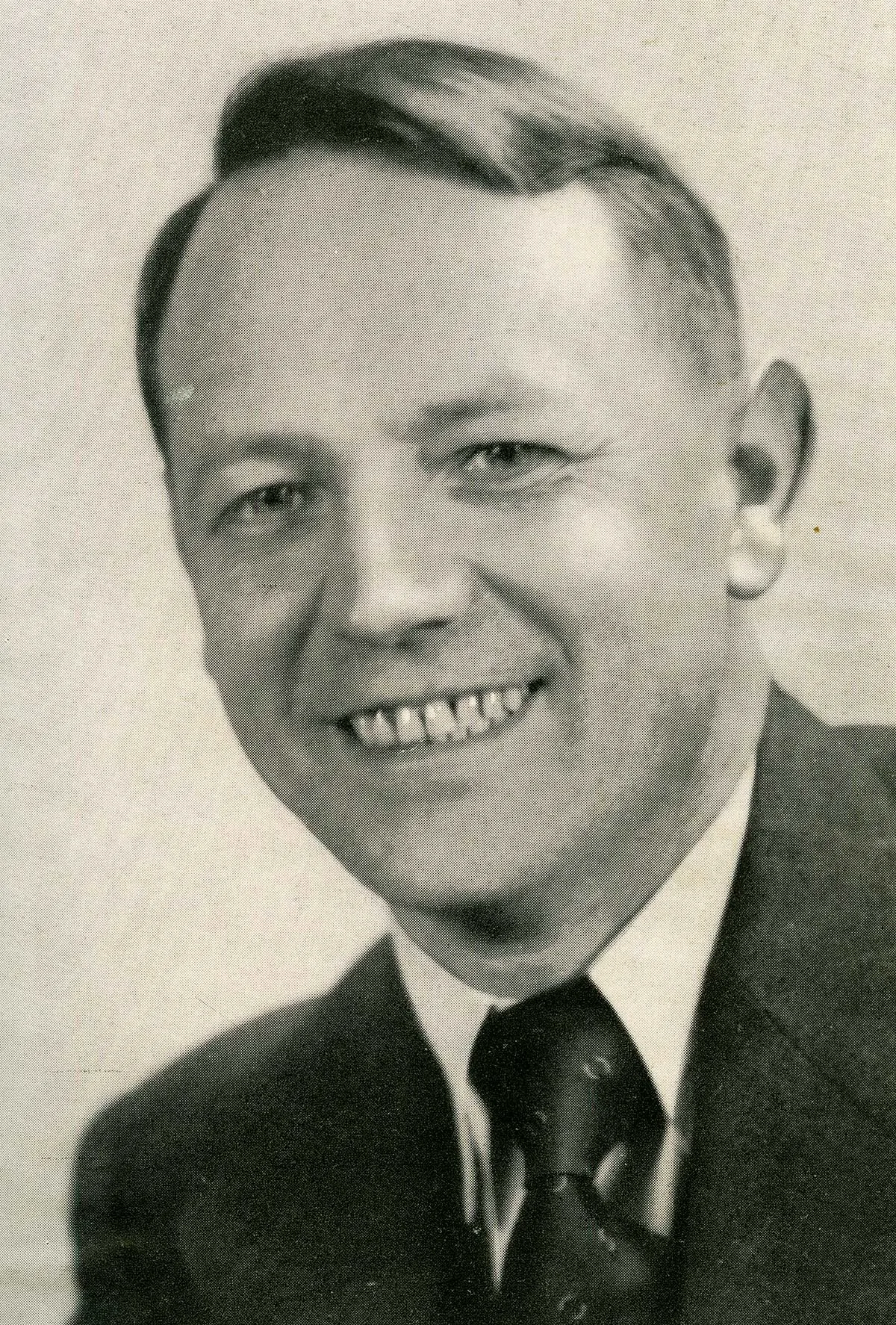
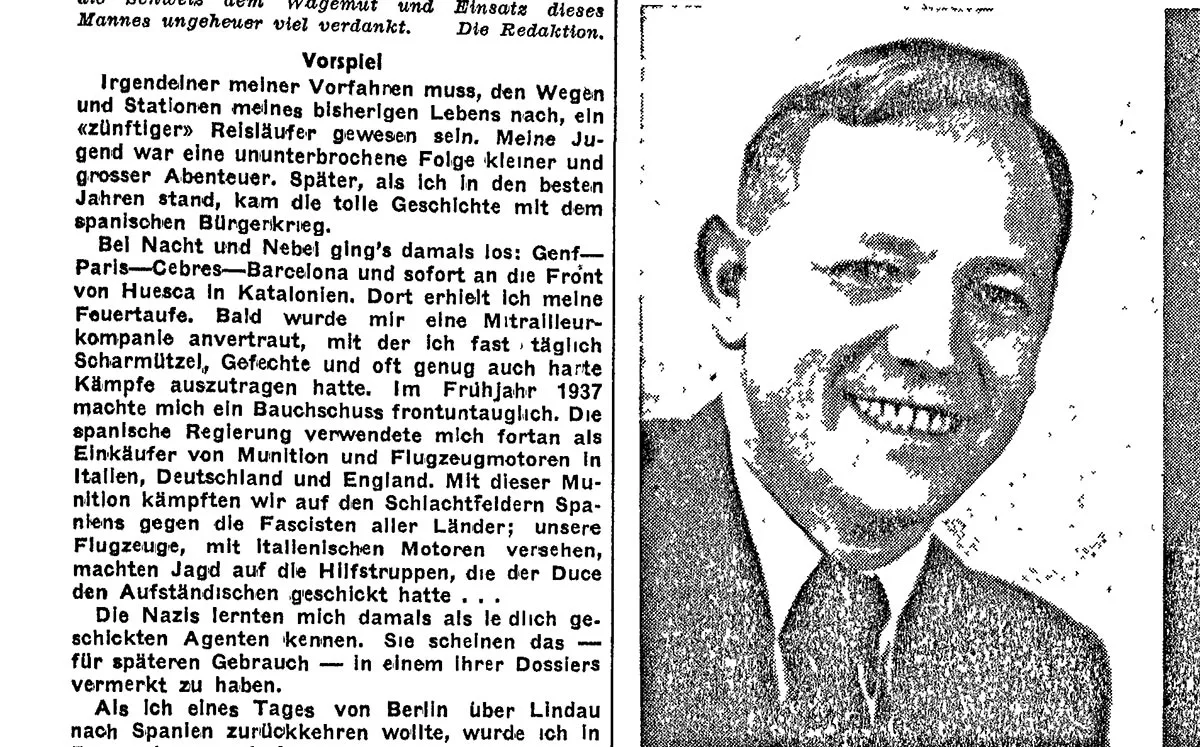
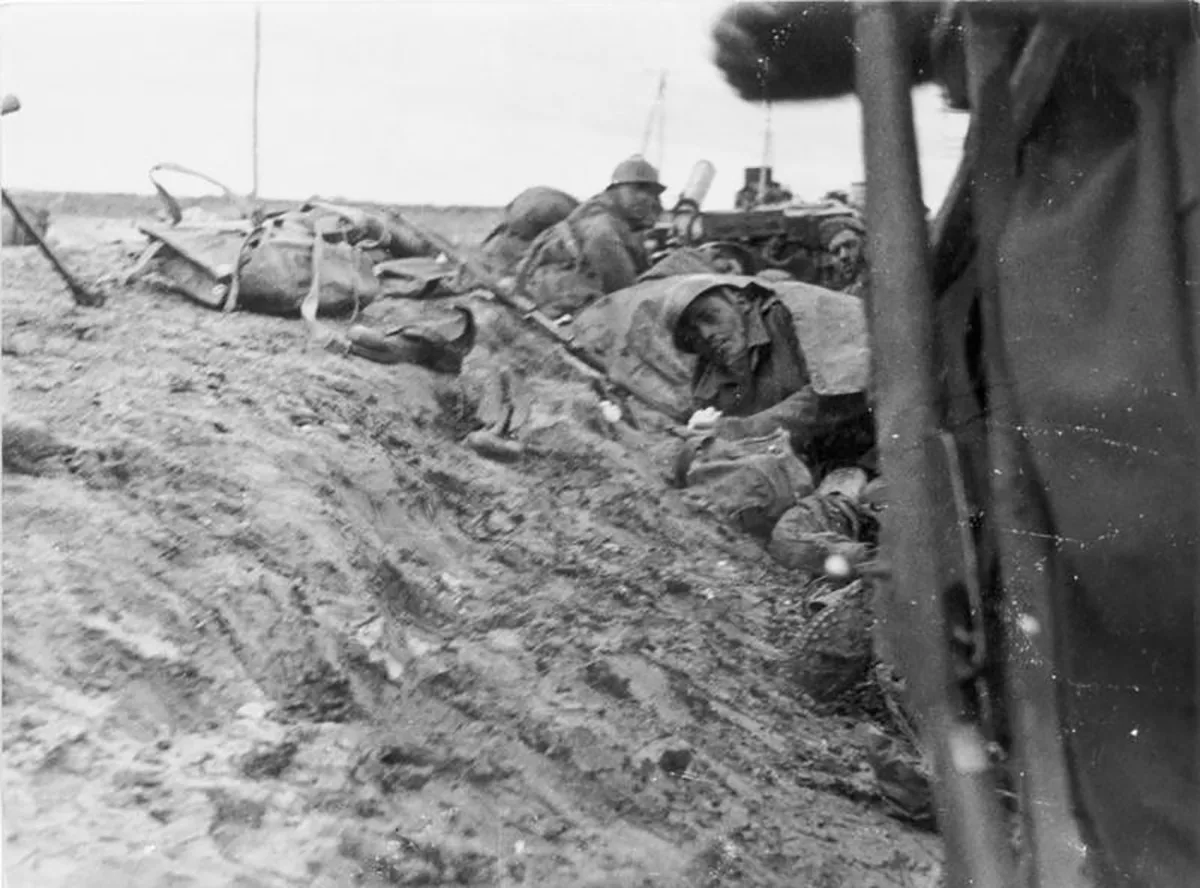
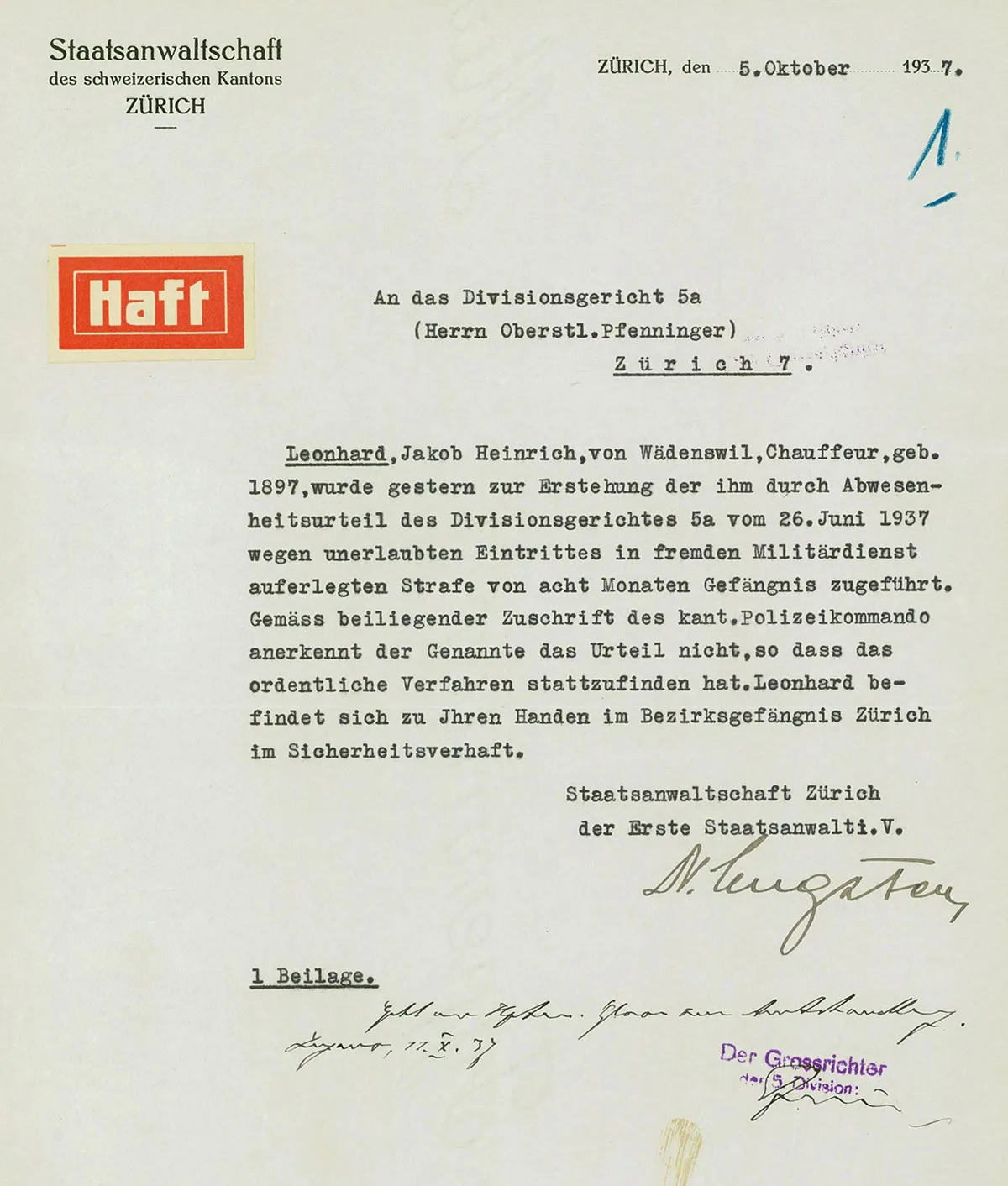
Postcard as evidence
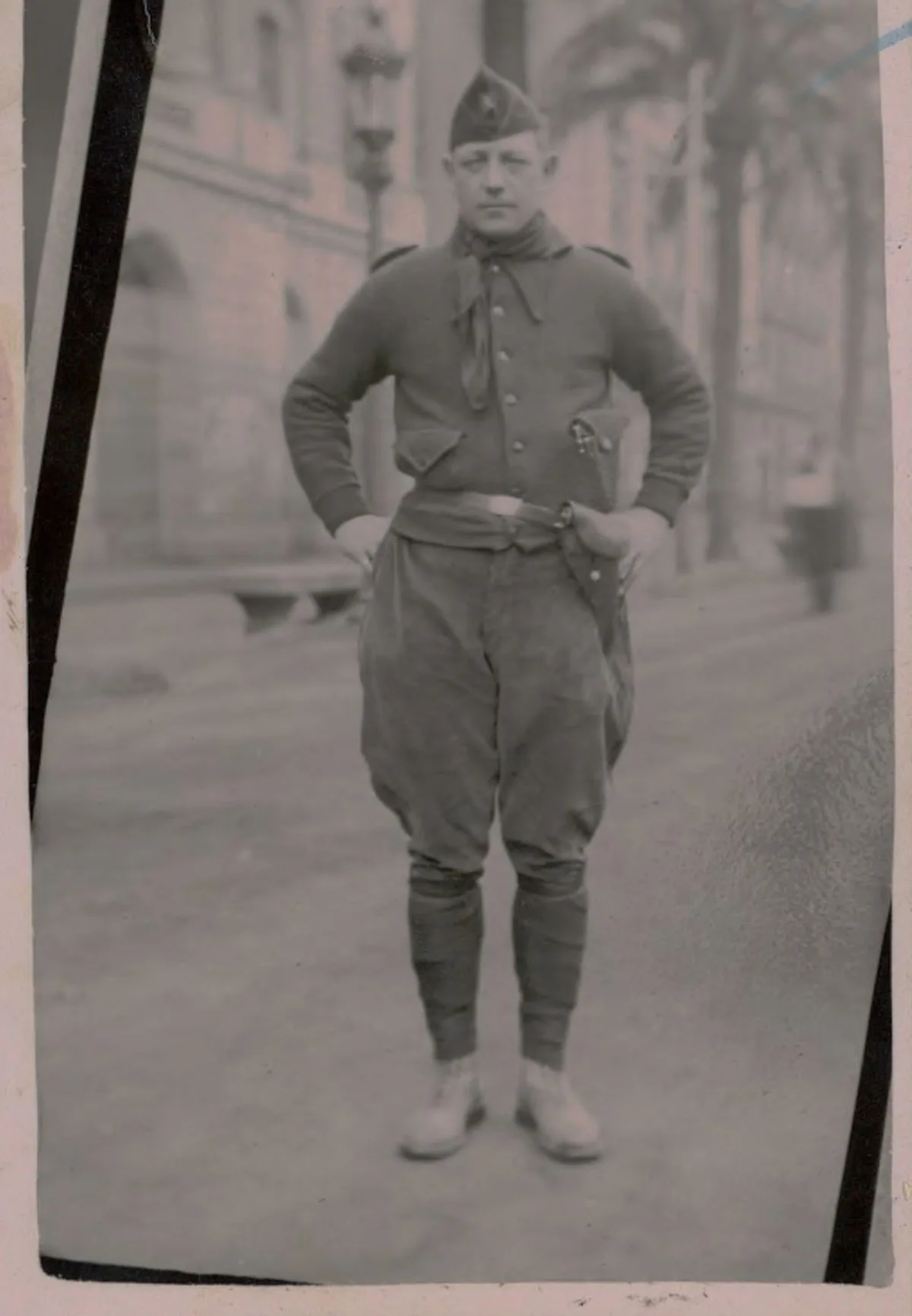
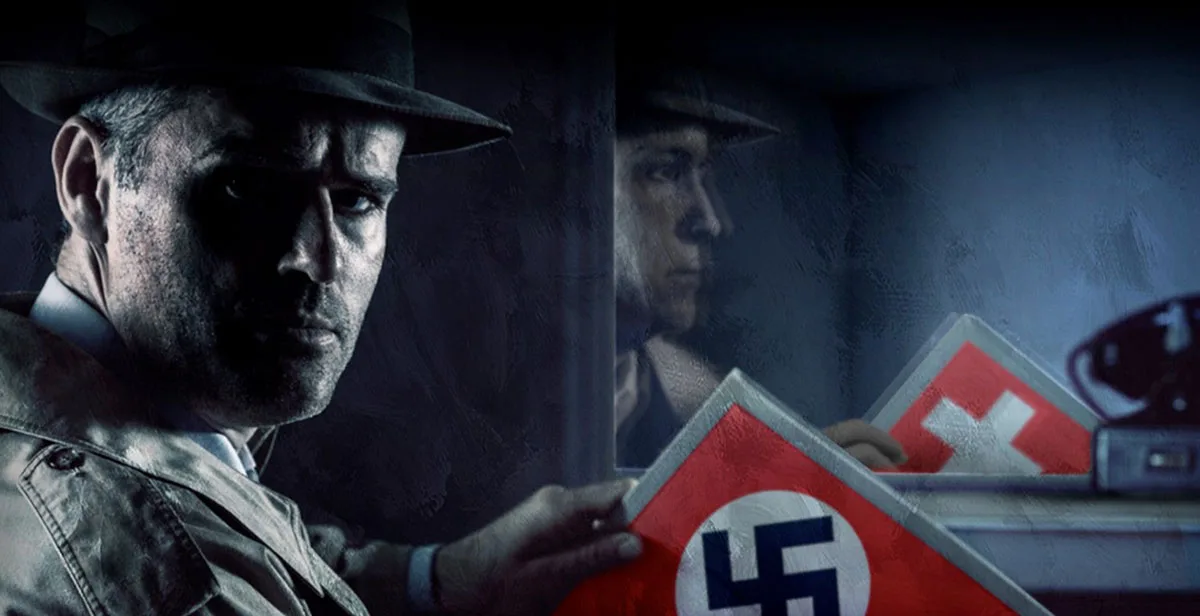
In the second part you’ll find out how fraudster Jakob Leonhard became a double agent who supplied the Nazis with false information, and was sentenced to death for it. For weeks, his life hung by a thread…

